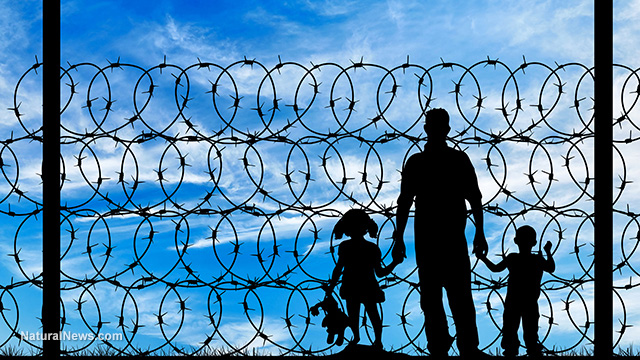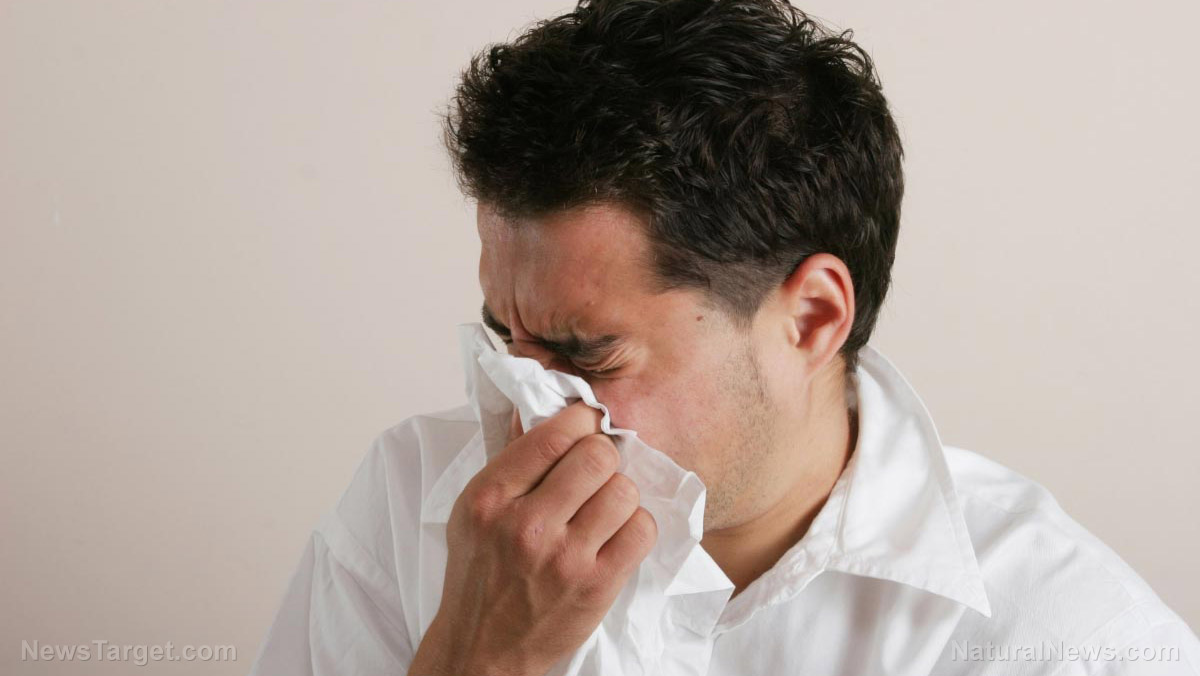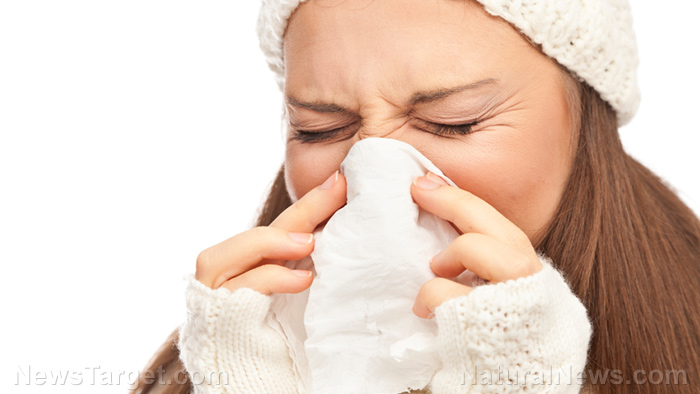Estrogen found to have a protective effect against the flu; may explain why the disease hits men harder than women
05/24/2018 / By Isabelle Z.

Many women joke that men act like babies when they’re sick, and perhaps you’ve found a bit of truth to this in your own life. Women with the flu often carry on with their daily tasks, braving through bringing the kids to school, going to work, and cooking dinner while feeling utterly awful, so they’re quick to grumble when their husbands are laid up on the sofa for days on end when the same illness strikes them. It turns out, however, that men do indeed suffer more than women do from the flu, so perhaps it’s time to give them the benefit of the doubt.
According to researchers from Johns Hopkins University, the female hormone estrogen has an antiviral effect against the flu. To understand why it hits men harder than women, it’s important to have a good grasp of how viruses make people sick in the first place. In short, viruses enter a host cell and make copies of themselves inside that cell. Once released, it spreads through the body and even from person to person, and the degree to which it has replicated will determine how severe it is.
The flu virus mainly infects nasal cells, so the researchers looked at nasal cells taken from donors of both sexes. After exposing them to the virus as well as estrogen and estrogen-like compounds, they discovered that the estrogen and the estrogen-like compounds reduced the flu virus replication in the nasal cells taken from women; this effect was not seen in men.
These findings support previous ones in animals illustrating estrogen’s protective effect against the flu. The researchers point out, however, that the protective effect can be difficult to spot among the general population because women’s estrogen levels cycle throughout the month until they reach menopause. That’s why, for example, pre-menopausal women who take certain types of birth control and post-menopausal women using hormone replacement therapy might be protected better when seasonal flu epidemics strike. In fact, they posit that the therapeutic estrogens used to treat infertility and menopause could offer flu protection.
Previous studies have also shown that estrogen’s antiviral properties extend to viruses like hepatitis, Ebola, and HIV. The latest findings were published in the American Journal of Physiology–Lung Cellular and Molecular Physiology journal.
Science shows man flu is no joke
All joking aside, the man flu phenomenon has some serious scientific backing. The term “man flu” has even made its way into the Oxford and Cambridge dictionaries. Another mechanism could also be at play in making men suffer more from flu; men experience other conditions in different ways than women as well. For example, heart attack pain in men tends to be felt in the chest, whereas women tend to experience symptoms like shortness of breath and nausea.
One study that examined six years of data found that men were hospitalized with flu more frequently than women, and flu deaths in men also outnumbered those in women. According to Harvard Health, one survey discovered that men take twice as long to recover from a flu-like illness than women.
Given how hard the flu can hit men and women alike, prevention is essential. The best approach everyone can take is to wash their hands frequently and avoid contact with those who have the flu. Support your immune system by eating a well-rounded and healthy diet, ensure you get adequate sleep and exercise, and consider supplementing with vitamin D, zinc and probiotics to stack the odds in your favor.
Sources for this article include:
Tagged Under: estrogen, Flu, hormones, infectious disease, influenza, man flu, men's health, natural protection, prevention, research, science, understanding illness, virus, women's health

















